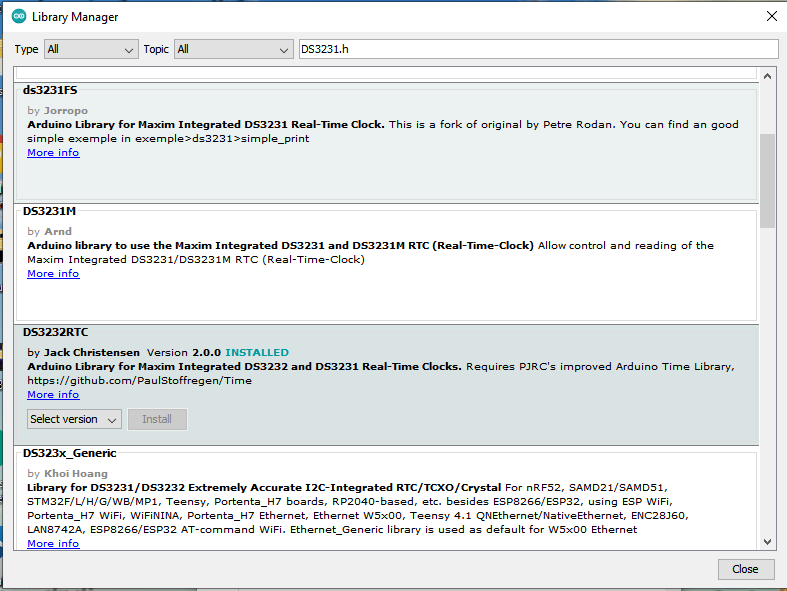Bro! when it is off, can it repeatedly becomes off?. When it's giving the wrong output, from that time it's slower than the actual time (that's why the difference is increasing).
When I re-upload code, without any testing of ware it's run perfectly.
My code is here.
#include<Wire.h>
#include<DS3231.h>
DS3231 rtc(SDA, SCL);
Time t;
int milliSec=0;
int gnd=2, v5=3; //Register Power.
int dataPin=4,latchPin=5, clockPin=6;
int dGnds[]={7,8,9,10,11};//From Left to Right
int digits[]={
//gfedcba
B00111111,//0=63
B00110000,//1=48
B01101101,//2=109
B01111001,//3=121
B01110010,//4=114
B01011011,//5=91
B01011111,//6=95
B00110001,//7=49
B01111111,//8=127
B01111011,//9=123
B00000001 //:=For second
};
void setup() {
rtc.begin();
Serial.begin(9600);
//setTime(); //For set time uncomment it, then recomment and upload again.
pinMode(gnd,OUTPUT),digitalWrite(gnd,LOW);
pinMode(v5,OUTPUT),digitalWrite(v5,HIGH);
pinMode(dataPin,OUTPUT);
pinMode(latchPin,OUTPUT);
pinMode(clockPin,OUTPUT);
pinMode(dGnds[0],OUTPUT),digitalWrite(dGnds[0],HIGH);
pinMode(dGnds[1],OUTPUT),digitalWrite(dGnds[1],HIGH);
pinMode(dGnds[2],OUTPUT),digitalWrite(dGnds[2],HIGH);
pinMode(dGnds[3],OUTPUT),digitalWrite(dGnds[3],HIGH);
pinMode(dGnds[4],OUTPUT),digitalWrite(dGnds[4],HIGH);
}
void loop() {
milliSec>1000 ? milliSec=0 : milliSec+=5;
t = rtc.getTime();
if (milliSec==950) Serial.print(t.sec, DEC);
showTime();
}
void showTime(){
int m=t.min;
int h=t.hour%12;
if (!h) h=12;
//Minute
showDigit(dGnds[0], digits[m%10]);
showDigit(dGnds[1], digits[m/10]);
//Blinking Second
if (milliSec>500) showDigit(dGnds[2],digits[10]);
//Houre
showDigit(dGnds[3],digits[h%10]);
showDigit(dGnds[4], digits[h/10]);
}
void showDigit(int digitGnd, int digitValue){
//ResetGnd
for (int i=0; i<5; i++) digitalWrite(dGnds[i], 1);
//Digit High
digitalWrite(latchPin, 0);
shiftOut(dataPin,clockPin, LSBFIRST, digitValue);
digitalWrite(latchPin, 1);
//Selected segment Gnd High, So that, Show digit.
digitalWrite(digitGnd, 0);
delayMicroseconds(1000);//Stay digit for 1 millisecond.
}
void setTime(){
//For set time please call this function from setup.
rtc.setDOW(SATURDAY);//Day name
rtc.setTime(1,0,00);//hh,mm,ss
rtc.setDate(03,03,2022); //dd,MM,yyyy
}
